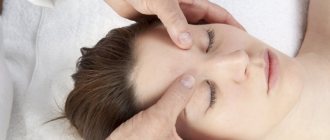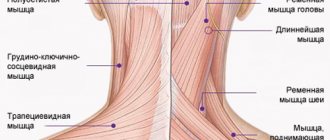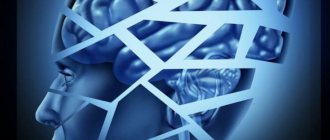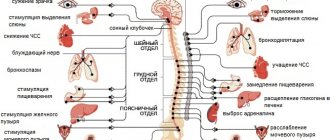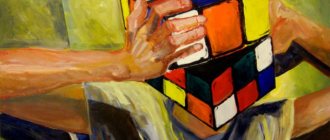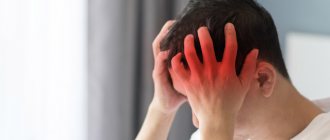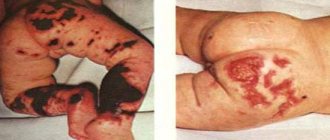Insomnia is a disease in which a person complains of sleep disturbances. In this case, patients note difficulty falling asleep, frequent awakenings during sleep, fatigue and decreased performance.
Sleep disturbance is a common problem and is observed in both adults and children. Isolated cases of insomnia often do not require treatment. However, regular lack of sleep leads to the appearance of somatic and psychological complaints, which require correction for normal daily life.
Description of the disease
Insomnia according to ICD 10 corresponds to code F51. According to the flow, insomnia is classified as:
- Transitional. Lasts about 7 days, often resolves against the background of severe depression;
- Spicy. In this case, a person has problems with sleep from 7 days to 1 month. This type of illness is combined with stress;
- Chronic. It lasts more than 1 month and occurs against the background of dysfunction of other organs, usually as a result of a failure of the hormonal system.
Sleep is an important component for maintaining normal body functions. Therefore, if sleep problems are left untreated, a number of complications arise:
- Obesity;
- Depression;
- Neuroses, GAD;
- Decreased learning ability, absent-mindedness;
- Decreased performance, drowsiness;
- Weakening the function of the immune system;
- The risk of developing chronic diseases of the gastrointestinal tract, cardiovascular and endocrine systems.
At the Yusupov Hospital, insomnia is treated using various modern methods: from medications to cognitive behavioral therapy.
How to get rid of insomnia?
A fulfilling life begins with proper rest.
It is completely normal for people to constantly feel tired after insomnia. The reason is lack of rest, which causes severe sleepiness during the day.
The reasons should be sought in relation to sleep and comfort. Sleep is a therapy for the whole body, and modern man neglects the time of healing, choosing the dubious benefits of entertainment.
Spending a third of his life in sleep, a person does not think about properly preparing the main process for the body. No one understands the importance of sleeping space for the brain, body, well-being and mood. No one understands that the mind, overloaded with information throughout the day, will not simply enter a relaxing sleep.
The body needs help:
- Ensure enough sleep, learn to rest again and prepare for it correctly. Half an hour before rest, turn off the TV, computer, smartphone, music. Sleep from 22:00 to 2:00 is the deepest and most relaxing; it is at this time that the brain produces somatotropin or the hormone of youth to burn fat and rejuvenate the skin.
- Record your wake-up time. Get up at the same time for a month, regardless of the time you fall asleep. This will help rebuild circadian rhythms and train the brain to correctly switch sleep and rest phases.
- Use light and darkness. During the day, spend time in the fresh air as often as possible, try to go out into daylight, at least in the morning and evening, when the sun is not too hot. At night, avoid electrical appliances that interfere with the darkness in the bedroom and use thick curtains.
- Avoid hot baths and hot showers before bed. When falling asleep, the body, on the contrary, lowers its temperature, and bath procedures speed up the heartbeat and excite the nervous system. You need to fill the bathtub with water at room temperature, sit in it for 5-7 minutes to relax, or dip your feet in cool water for a minute, and quickly wipe with a towel.
- Do light exercises. Lying on your back, pull your toes towards you and away from you. Clench your fists and relax them several times. Close your eyes and roll your pupils up - in this position the brain sends a signal to relax.
- Drink a glass of warm milk with a spoon of honey. Place three drops of lavender oil on a piece of sugar and eat before bed.
Attention needs to be paid to both the mind and body:
- Pain in the back and neck appears on a too soft, worn-out mattress with dents and bumps, since the necessary support for the body is not created.
- Insomnia occurs due to insufficient relaxation of the body, the inability to find a comfortable position during sleep, and frequent awakenings.
- Disturbed sleep habits and muscle imbalances - an uncomfortable bed forces the body into forced postures, which provokes muscle strain.
The result of such a dream will be not only drowsiness during the day, but also weakness, body aches, and lack of energy. An uncomfortable sleeping place gives rise to a persistent association “sleep – discomfort”, so a person subconsciously tries to avoid rest that does not bring relief, and starts a vicious circle of insomnia. Drowsiness is accompanied by cravings for unhealthy foods, overeating, and decreased self-control and libido.
Who would have thought that an uncomfortable bed could ruin your personal life and figure?
A mattress that is too soft or too hard, an uncomfortable pillow, or an old, worn-out bed can all make it difficult to fall asleep quickly and get a good night's sleep. Twice a year you need to check the mattress for signs of wear and update the pillows. If pain in the neck, lower back and joints intensifies after sleep, you can visit an osteopath who uses gentle manual therapy practices. In one or two sessions, a specialist will remove muscle blocks, and an orthopedic mattress will support the health of the spine, correct muscle balance, help recover from physical activity, maintain posture, and ensure a good mood without the blues.
An integrated approach to relaxation restores vigor, activity and health.
Causes
Sleep disorders do not depend on age and gender, and occur with equal frequency in the male and female half of the population.
Causes of insomnia can be:
- Stress, divorce, conflicts in the workplace;
- Alcohol abuse;
- Substance use;
- Drinking chocolate or coffee drinks before bed;
- Debilitating night pain;
- Mental disorders: depression, OCD, schizophrenia, dementia;
- Sedentary lifestyle;
- Busy work schedule, lack of rest;
- Previous thoracic surgeries;
- Brain damage;
- Heart diseases;
- Difficulty breathing through the nose, deviated nasal septum.
In adults, poor sleep is often caused by a circadian rhythm disorder. When a person works at night and sleeps during the day. In this case, the constancy of the internal environment is disrupted, and hormonal imbalance occurs.
Children may experience sleep disturbances when urinating at night. Sleep is very important for children, since at this time the main hormone is produced, which determines the growth of the child.
People often experience insomnia after quitting smoking. It is not difficult to explain why this happens - special neurotransmitters are produced during smoking. Lack of habit leads to their deficiency, which causes nervous excitement in the body, aimed at eliminating the lack of substances.
Insomnia from vitamins
For normal body function, it is necessary to consume sufficient amounts of vitamins and minerals. With their deficiency, a state of hypovitaminosis develops, which can cause insomnia and other neurological disorders.
A lack of the following substances can lead to sleep disturbances:
- Magnesium;
- Calcium;
- Gland;
- Zinc;
- B vitamins;
- Vitamin A and E.
During a consultation at the Yusupov Hospital, a specialist will select the necessary set of substances for you to eliminate their deficiency and treat insomnia.
Insomnia from overwork
Chronic overwork leads to increased production of the stress hormone cortisol. It provokes the appearance of nervous excitement in the brain, which prevents a person from sleeping at night.
More often, sleep disturbances occur against the background of active mental activity. At the same time, the brain is constantly in a tense state, obsessive thoughts appear that prevent you from relaxing and falling asleep. To avoid insomnia, you need to make a proper work plan and sleep at least 7 hours a day.
Causes of insomnia in older people
In old age, melatonin production decreases, which causes frequent awakenings during sleep and in the morning. Also, the cause of insomnia in old age can be diseases of the cardiovascular and genitourinary systems.
Increased sleepiness during the day: causes and consequences
Someone takes a nap on the bus, dozes off during a boring presentation, people with heavy eyelids stand in a cafe in the middle of the day. Sudden falling asleep while driving will cause an accident. Sleeping at work can result in a fine or dismissal. Lack of sleep is associated with the risk of hypertension, diabetes and obesity.
Deliberate sleep restriction is the enemy of modern human health. About 20% of Russians sleep less than 6 hours a day. In 2001, this figure was 13%. Many people do not get enough sleep due to air travel, shift work, the desire to earn more, or communication on the Internet... Insomnia occurs if you try to get enough sleep at night. And only 3-5% of people have sleep apnea, restless legs syndrome and narcolepsy as the causes of sleepiness.
Some people try to cope with excessive sleepiness with caffeine or stimulants, but only join the ranks of insomnia sufferers by drinking too much coffee in the afternoon.
Symptoms of insomnia
Rare episodes of sleep disturbances often do not require treatment and go away on their own without consequences. It is important to recognize the first symptoms of insomnia, which can cause disorders in the human body.
You should consult your doctor if you are concerned about:
- Problems falling asleep;
- Fear of not falling asleep;
- Sleep disturbances at least 3 times a week for a month or more;
- Frequent awakenings during sleep;
- Daytime sleepiness, decreased concentration and performance.
Untimely treatment of poor sleep leads to the following adverse consequences for the human body:
- The risk of heart attack and stroke increases;
- Lack of rest leads to increased brain activity. At the same time, processes are activated in the body aimed at overcoming a stressful situation and storing energy. Increased appetite, which contributes to the development of obesity;
- The production of growth hormone decreases, the process of bone development is disrupted;
- Memory and attention problems occur. It is difficult for a person to remember something new;
- Development of depression, generalized anxiety disorder and other mental disorders.
Late signs of insomnia (lack of sleep for more than 5 days) include:
- Impaired consciousness, hallucinations;
- Muscle twitching, hand tremors;
- Hair loss;
- Development of chronic diseases due to decreased immunity.
The occurrence of sleep disorders is fraught with consequences. In our clinic, during a consultation with a doctor, you will learn about the cause of your problem, as well as how to get rid of it.
Symptoms of insomnia are also classified into 3 categories depending on the triggering factor:
- Presomnia occurs with jet lag, restless legs syndrome and anxiety;
- Intrasomnia develops when a person is bothered by pain and obstructive sleep apnea syndrome;
- Post-somnia. Common causes of this disorder are depression and alcohol addiction.
Presomnia disorders
These disorders occur when there are problems falling asleep when a person tries to fall asleep for several hours. Such people are often afraid of nightfall, they are bothered by a constant stream of thoughts and anxiety. In this condition, you do not need to concentrate on the problem; sports or a walk in the fresh air 3 hours before bedtime will help.
Intrasomnic disorders
These are disturbances in the sleep process. Such people have superficial and sensitive sleep. They can wake up from any rustle or even a whisper. Awakenings also occur with nightmares and frequent urges to go to the toilet. After this, the person can fall asleep and sleep all night, but this does not always happen. The thought that the provoking situation will happen again prevents sleep and insomnia occurs.
Disturbances upon awakening
Also called post-somnia and can develop both as a result of lack of sleep and against the background of various diseases. In this case, the person experiences severe weakness and fatigue after waking up. During the day they feel drowsy, but at night, on the contrary, they are active. Such patients also suffer from headaches, dizziness, irritability, high blood pressure and heart rhythm disturbances.
Why sleep disorders cause fatigue and weakness
Normally, the main purpose of sleep is to restore strength and performance. It is known that the body rests at night so that the next morning a person is fresh and alert.
The structure of sleep consists of cycles of identical composition lasting 1.5-2 hours. During the night's rest, they are repeated one after another; during the night a person wakes up 4-6 such cycles. Each cycle includes several successive stages (four stages of slow-wave sleep, one stage of REM sleep), and each of them is important in its own way.
The most “useless,” so to speak, are the first two stages of the slow phase. At this time, the person gradually falls into deep sleep.
Deep slow-wave sleep (stages 3 and 4) occurs 30-40 minutes after falling asleep. At this time, processes of restoration of physical resources occur in the human body. The energy reserves of cells and tissues are replenished, metabolic products accumulated during the day are inactivated and removed from them. All organs work less actively than during the day, which allows them to restore their functions and “gain strength.” The brain and endocrine glands secrete biologically active substances that improve the condition of organs.
The REM stage completes the sleep cycle. It only lasts 15-20 minutes (the duration of REM sleep increases in the morning), but it is very important. At this time, not only the body, but also the brain “rests”. Information is absorbed and stored in long-term memory. Nerve cells restore their functionality.
After sleeping for several cycles, a person wakes up alert and full of strength physically and mentally. But with various somnological problems, the structure of sleep is disrupted and/or its duration is reduced, and this causes inevitable consequences in the form of fatigue and weakness.
What to do for insomnia
To understand what to do with insomnia, it is important to understand the reason that caused it. A somnologist who studies sleep and treats sleep disorders will help with this. To combat insomnia due to fear and nightmares, you may need to consult a psychologist. Getting healthy sleep back is not difficult, especially with the help of a specialist. For this purpose, the doctor may prescribe sedatives or psychological training.
Walking and physical exercise 3 hours before rest helps with poor night sleep in adults. If you constantly wake up at night and suffer from insomnia, reconsider your diet; perhaps your body is not getting the necessary substances from food. To take the required dose of vitamins and minerals, eat more fresh vegetables and fruits.
How to get rid of sleepiness at work?
Give a light head massage to speed up blood circulation and stimulate brain function. Eating an apple, which is better than a cup of coffee, fills the body with energy and vitamins. Get up and walk if you feel lethargic and drowsy - endorphins will help you come to your senses faster. Listen to your own body: a sudden desire to eat chocolate may indicate a drop in blood sugar levels, and it is worth listening to your body and returning your brain to fighting capacity - just do not eat a cake, cookies, butternut squash or waffle. Excess carbohydrates will have the opposite effect - increased drowsiness after twenty minutes. Coenzyme Q10, together with B vitamins, will become a source of vigor in every cell and renew the nervous system.
Treatment of insomnia
How to treat insomnia can be determined by your attending physician after diagnosing your health condition. A sleep specialist studies sleep problems. Doctors at the Yusupov Hospital have been successfully treating insomnia for many years. We employ top-class specialists with scientific titles and many years of experience.
Several areas of medicine are used to treat insomnia:
- Non-medicinal;
- Medication;
- Behavioral therapy;
- Alternative medicine.
Non-drug treatment
Rare episodes of insomnia can resolve on their own with proper sleep hygiene:
- Go to bed on time. If you try to fall asleep and wake up at the same time, this helps maintain a normal biological rhythm;
- The optimal time for an adult to sleep is 7 hours. Increasing or decreasing its duration is not desirable;
- Playing sports. Regular physical activity has a powerful anti-stress effect. Experts recommend exercising 2-3 hours before bedtime with regularity at least 2 times a week;
- Do not drink alcohol, coffee, or tonic drinks before bedtime. Caffeine-containing products can be drunk 6 hours before bedtime. Alcoholic drinks have a calming effect in small doses;
- Do not smoke 90 hours before bedtime. Tobacco stimulates brain activity;
- Get rid of thoughts, do not force yourself to sleep;
- Go to bed not hungry or with a full stomach.
Following these rules will enhance the effect when combined with other techniques and help cure insomnia.
Treatment of insomnia with medications
The following medications are used to treat sleep disorders:
- Antidepressants are used if the cause of insomnia is depression. However, some drugs are widely used in patients without neurological disorders, as they have a sedative effect. These include trazodone, amitriptyline, mirtazapine;
- Herbal preparations with a calming effect. Among them are valerian and motherwort; systematic long course use is required for results to appear;
- Anxiolytics are quite effective. These are medications with a sedative, anti-anxiety and muscle relaxant effect. They normalize the ratio of excitation and inhibition processes in the brain. Afobazole and alprazolam are most often used for insomnia;
- Sleeping pills can only be taken as prescribed by a doctor, as they are often addictive and can inhibit nervous activity. They are usually prescribed when other treatment methods are ineffective. To prevent the development of addiction, use should be no longer than 4 weeks.
You can take medications for insomnia on your own that are not addictive. The use of such medications should be supervised by a doctor who treats sleep problems.
Behavioral therapy
This method of treatment involves working with a psychologist or psychotherapist aimed at controlling the patient’s internal experiences. These include:
- Cognitive therapy. It aims to educate the patient about sleep and ways to improve it;
- Relaxation therapy. This is teaching the patient techniques aimed at relaxing and preparing the body for sleep. For this purpose, breathing exercises, yoga and special exercises are used;
- Sleep restriction therapy. The principle is based on the occurrence of a feeling of drowsiness. To do this, a person is allowed to be in bed during sleep plus 15 minutes, dozing is prohibited, and he must get up and go to bed at the same time.
At the Yusupov Hospital, consultation with a neurologist, psychologist, psychiatrist, and other related specialists is available. We use modern psychotherapeutic techniques that will help you get rid of neurological disorders forever.
Alternative medicine methods
Physiotherapeutic procedures are also widely used to cure insomnia:
- Massage improves blood supply to internal organs and the brain, helps you relax and relieve muscle spasms;
- Acupuncture is a type of reflexology. Through the impact on special points with a needle, blood flow and innervation are increased, which leads to an improvement in overall well-being;
- Electrosleep is a method of inducing sleep by transmitting nerve impulses through special electrodes;
- Electrophoresis with sedatives enhances the effect of drugs;
- Magnetic therapy, darsonvalization and galvanotherapy of the collar zone are highly effective for osteochondrosis of the cervical spine. Minimal electrical impulses stimulate blood flow and nerve impulse transmission;
- Taking warm baths and aromatherapy with pine and lavender oils promotes relaxation.
Among traditional medicine, the use of tinctures and decoctions of herbs with a calming effect is common. These include sleep herb, mint, valerian and hawthorn. To get rid of chronic insomnia, you can make mint tea at night 20 minutes before bed.
How to deal with daytime sleepiness?
Analyze all life factors and make adjustments:
- To the home medicine cabinet. The cause of drowsiness may be taking anti-allergy medications, painkillers, antipsychotics and antidepressants, anti-cold complexes such as Theraflu due to the sedative component, as well as sedatives, including herbal ones.
- Nutrition. Drowsiness is caused by eating carbohydrate foods (potatoes, bread, pastries), after which the blood glucose level rises sharply and quickly decreases, causing drowsiness caused by the action of insulin.
- Obtaining oxygen. In a closed and unventilated room, yawning often begins, which is associated with a lack of oxygen. Anemia, caused by a decrease in red blood cells that carry oxygen in the blood, also provokes weakness, lethargy, and a constant desire to sleep.
- Physical activity. Movement eliminates the three main causes of fatigue and drowsiness: depression, obesity, diabetes. Increased levels of inflammatory molecules in the blood can cause drowsiness and weakness. Regular exercise reduces levels of C-reactive protein, tissue necrosis factors and interleukins, reducing the risk of heart disease, arthritis and other inflammation.
Everyone chooses their own way to correct their lifestyle. Someone purchases a subscription to a fitness center with a full range of services, from a gym, swimming pool to yoga classes and a sauna for 4-8 thousand rubles per month.
Someone undergoes a comprehensive examination of the body, shelling out up to 30 thousand rubles in clinics, and receives familiar recommendations on proper nutrition and exercise.
Some people track activity and rest using a sleep diary, a pedometer, or a convenient fitness bracelet that reads the amount of sleep and movement throughout the day. The assistant cannot be deceived: it displays the exact time of sleep on the mobile application, indicates the duration of deep (healthy) and light sleep, the number of awakenings and the time spent falling asleep.
The norm for the average adult is 7-8 hours of sleep with a minimum number of awakenings (no more than two) and falling asleep within 30 minutes.
Self-treatment of insomnia
It is possible to combat insomnia at home, but sometimes it can only make the problem worse. Therefore, before taking any medications on your own, you should consult your doctor.
At home, the main actions should be aimed at preventing sleep disorders. To improve the quality of your rest, it is recommended:
- Ventilate the room before going to bed;
- The optimal temperature for sleep is considered to be 16-19 °C;
- To relax and distract your attention, you can listen to calm music or read a book;
- A comfortable, orthopedic mattress will improve the quality of sleep and the condition of your spine;
- Deep breathing stimulates the parasympathetic nervous system, which reduces heart rate and promotes sleep;
- A good home remedy for insomnia is warm milk or tea with honey.
Remember that self-medication is potential harm to your body. Taking any medications should be under the supervision of doctors.
Severe daytime sleepiness due to night sleep disorders
It seems that enough time has been spent in bed, but weakness and drowsiness during the day haunt you and reduce productivity at work. Sleep disorders can be associated with the quantity and quality of sleep, and are defined by the following symptoms:
- It takes more than 30 minutes every day to fall asleep.
- There are frequent awakenings and problems falling asleep.
- Severe daytime sleepiness is accompanied by frequent bouts of unintentionally falling asleep at inopportune times.
- Loud snoring, choking sounds, or pauses in breathing during sleep indicate sleep apnea.
- Tingling or crawling sensations in the legs or arms while falling asleep.
- Sudden shaking of the limbs during sleep.
- Waking up due to headache.
- Vivid, dream-like experiences and visions during dozing or falling asleep.
- Unusual behavior during sleep: talking, walking, getting up.
- Episodes of sudden muscle weakness during attacks of anger, fear or laughter.
- Inability to move the body immediately after waking up.
The listed symptoms indicate that one or another phase of sleep is disturbed. The causes of daytime sleepiness in men are most often associated with apnea - short-term breath holdings during sleep due to a large dinner before bed, alcohol consumption, smoking or excess weight.
Daytime sleepiness in the elderly is caused by a reduction in the duration of rapid eye movement sleep (sleep with dreams), and an increased need for the comfort of a sleeping place. Drowsiness in the afternoon indicates excessive consumption of coffee in the morning - there should be moderation in everything.
Daytime sleepiness warns of a serious thyroid disease if accompanied by obesity, high blood pressure, and sweating.
However, the main factor is sleep quality.
Treatment of neurosis in Moscow
Yusupov Hospital is a multidisciplinary medical center. We treat insomnia using modern techniques that allow you to normalize sleep in the shortest possible time. We provide treatment in both inpatient and outpatient settings.
A favorable environment in the clinic together with a friendly team sets you up for a successful treatment outcome. The Yusupov Hospital is equipped with new generation diagnostic equipment, which allows for accurate diagnosis of diseases. Our specialists regularly improve their qualifications, receive scientific titles and master modern methods of treating insomnia.
To make an appointment for a consultation, call the phone number. Our operators work around the clock and will make an appointment at a time convenient for you.

